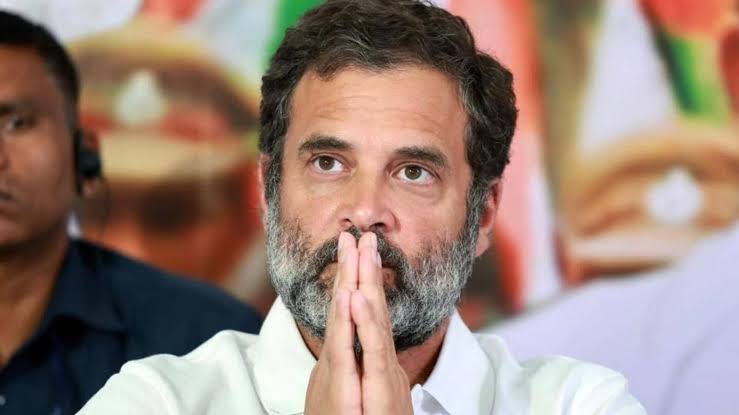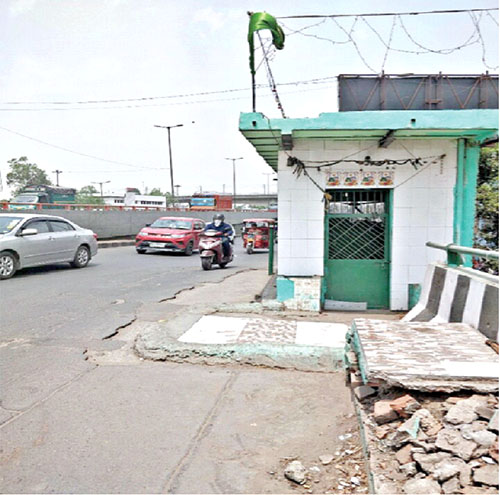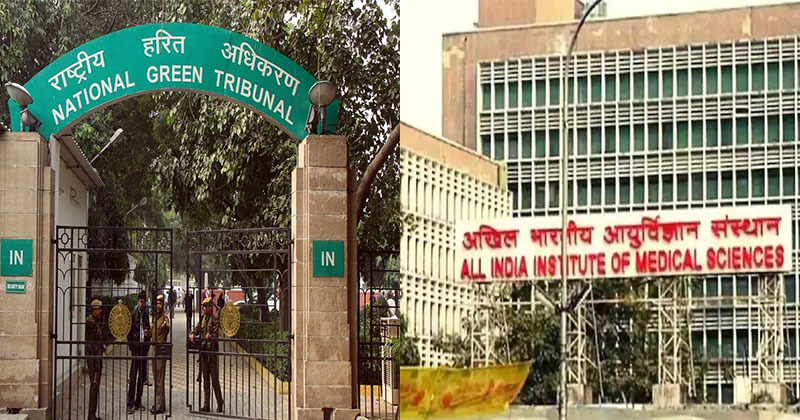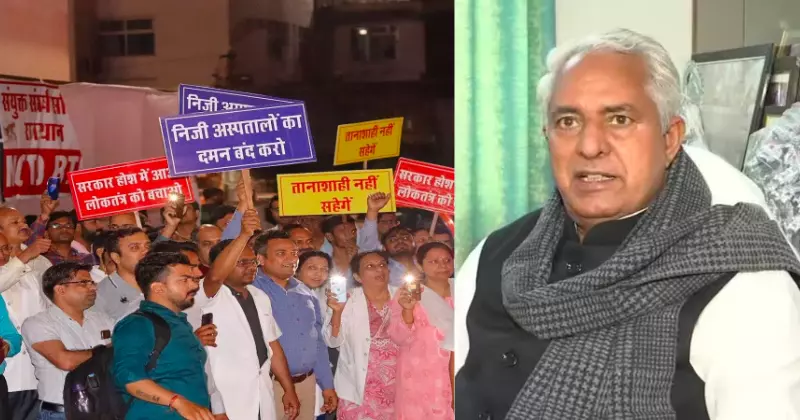On August 4, the Supreme Court of India stayed the conviction of Disqualified Congress MP Rahul Gandhi for his remarks in the ‘Modi Surname Defamation Case.’ The court’s three-judge bench, comprising Justices BR Gavai, PS Narasimha and Sanjay Kumar, said that the trial court awarded the maximum sentence of two years without providing enough reasons for the same. The court said that if Rahul Gandhi’s sentence was a day lesser, the provisions would not have been attracted.
“The sentence for an offence punishable under Section 499 of the Indian Penal Code is maximum of two years of sentence or fine or both. The learned trial judge, in the order passed by him, has awarded the maximum sentence of two years. Except the admonition to the petitioner by this Court in a contempt proceeding, no other reason has been granted by the learned trial judge while imposing the maximum sentence of two years. It is to be noted that it is only on account of the maximum sentence of two years imposed by the learned trial judge that the provisions of Section 8(3) of the Representation of Peoples Act came into play. Had the sentence been a day lesser, then the provisions would not have attracted,” the court said.
“Particularly when the offence was non-compoundable, bailable and cognizable, the least which was expected from the learned trial judge was to give reasons for imposing the maximum punishment. Though the learned appellate court and the High Court have spent voluminous pages in rejecting the applications, these aspects are not seen considered,” the court added.
The court observed that Rahul Gandhi’s remarks were not in “good taste” and that a person in public life ought to exercise caution while making public speeches. The court accepted that the accused Congress MP ought to have been more careful.
The complainant’s counsel, Senior Advocate Mahesh Jethmalani, argued that the accused Congress MP was admonished by the Supreme Court. The counsel referred to the case where Rahul Gandhi attributed ‘chowkidar chor hai’ remarks to the Supreme Court. The counsel said that the accused, in the contempt case, had compounded his defamatory remarks. The counsel further argues it is well settled that an apology does not eradicate contempt but is an admission of guilt, rejecting the contentions that Rahul Gandhi has no prior convictions. However, Justice BR Gavai said, “Had this judgment come up earlier, your client (Rahul Gandhi) could have been more cautious.”
Furthermore, the Supreme Court said that Rahul Gandhi’s disqualification under the Representation of People Act not have affects the rights of the accused Congress MP but also of the electorate. The court further said that no reason has been assigned by the trial court to award maximum sentence to Rahul Gandhi, while staying his conviction.
The court’s three-judge bench was hearing Rahul Gandhi’s challenge against Gujarat High Court’s July 7 verdict refusing to stay his conviction in the defamation case.
Rahul Gandhi Refuses To Apologise
In his latest affidavit, Rahul Gandhi had refused to apologise for his remarks in the Modi Surname Defamation Case. The Disqualified Congress MP filed the affidavit in response to complainant BJP MLA Purnesh Modi’s affidavit calling Rahul Gandhi “arrogant.” The complainant submitted the court that a stay on conviction is granted in the “rarest of rare cases for exceptional reasons” and Rahul Gandhi’s case does not fall into that category.
“The petitioner maintains and has always maintained that he is not guilty of offence and that the conviction is unsustainable and if he had to apologise and compound the offence, he would have done it much earlier,” Rahul Gandhi’s affidavit read.
“Using the criminal process and the consequences under the Representation of Peoples’ Act to arm twist the petitioner into apologising for no fault, is gross abuse of the judicial process and ought not to be countenanced,” Rahul Gandhi submitted in his affidavit.
The Congress leader had filed the affidavit in response to complainant BJP MLA Purnesh Modi’s affidavit submitting that Rahul Gandhi’s conviction was based on unimpeachable evidence. Furthermore, the complainant contends that the convicted MP defamed all persons having ‘Modi’ surname, particularly Gujarat’s Modh Vanik caste. He further submitted that Gandhi’s comments were made out of “personal hatred towards the elected PM of the country.”
“Such was his hate that he cast defamatory aspersions on persons bearing the same surname as the PM…the statement was made maliciously towards a blameless class of persons and therefore he deserves no sympathy on the question of sentence,” the complainant’s affidavit read.
The complainant further informed the court that the accused, Rahul Gandhi, is out on bail in the National Herald case and is also facing another case for defaming a freedom fighter, Veer Savarkar. Furthermore, the complainant submitted that the accused did not show a repentant attitude even when he was being sentenced by the trial court. The complainant informed the court that the former Congress MP instead proclaimed that “he was not Savarkar but Gandhi.”
“Subsequent to the order of conviction and sentence, the petitioner said he would never apologise in this case as he was not a “Savarkar” but a “Gandhi”,” the affidavit read.
The complainant further referred to an earlier instance, where the Supreme Court pulled up Rahul Gandhi for his wrongful attribution of the “chowkidar chor” remark. The complainant further informed the court that the former Congress MP thereafter tendered an unconditional apology to the court. The complainant argues that Rahul Gandhi’s “arrogant entitlement, insensitivity to a community, and contempt for law” must disentitle him for relief.
Gujarat High Court’s Refusal to Stay Conviction
On July 7, the Gujarat High Court refused to stay Rahul Gandhi’s conviction in the Modi Surname Defamation Case. The court had said that there are no reasonable grounds to stay Rahul Gandhi’s conviction, thus continuing his disqualification as an MP.
“In view of the foregoing discussions, in my considered opinion, there is no reasonable ground to stay the conviction of the applicant in the facts and circumstances of the case. The impugned order passed by the appellate court is just, proper and legal and do not call for any interference,” the court said in its 125-page order.
Rahul Gandhi’s counsel, Senior Advocate Abhishek Manu Singhvi, had argued that the offence registered against the accused is neither serious in nature nor involves moral turpitude. The counsel alleged that the these are the two tests for denying suspending the conviction. The counsel further submitted that the Rahul Gandhi is an MP and represents a constituency, which he has to miss due to his conviction and thus his duty towards his people would be ruined.
However, the court noted that the accused is a senior Congress leader and a prominent figure in the realm of Indian political landscape. The court noted that his remarks automatically get “large scale publicity.”
“The petitioner is assumed to be aware of the same and being a public personality is vested with the duty to exercise this vast power at his disposal with caution ensuring that dignity and reputation of a large number of persons or any identifiable class is not jeopardised due to his political activities or utterances,” the Gujarat High Court said.
On the issue of maximum punishment being awarded to Rahul Gandhi, the court said that it is not enough to disregard the seriousness of the present offence. The court said that the accused Congress leader’s conviction is a serious matter affecting a large segment of society and that the court needs to view the same with the gravity and significance it commands.
“In fact, the applicant (Rahul Gandhi) is trying to seek stay of his conviction on absolutely non-existent grounds. It is well-settled principle of law that stay of conviction is not a rule but an exception to be resorted to in rare cases,” the court said.
The court further noted that there are about 10 criminal cases pending against Rahul Gandhi. “It is now need of the hour to have purity in politics. Representatives of people should be man of clear antecedent,” the court said.
Surat Sessions Court Refuses to Stay Rahul Gandhi’s Conviction
On April 20, the Surat Sessions Court dismissed Rahul Gandhi’s application seeking a stay on conviction in the Modi Surname Defamation Case for his remark “Why all thieves share the Modi surname” during his political campaign for the 2019 Lok Sabha elections.
The former Congress MP challenged his conviction before the Surat Sessions Court along with two applications accompanied by his appeal, one for suspension of his sentence and the other for suspension of his conviction. Thereafter, the Additional Sessions Judge at Surat, Robin P Mogera, suspended the sentence imposed against Rahul Gandhi on April 3 and granted him bail pending a hearing of his appeal.
Rahul Gandhi’s counsel argued that the complainant BJP leader Purnesh Modi cannot be termed as an ‘aggrieved person’ and hence was not authorized to file the complaint. Furthermore, the counsel argued the concept of the expression ‘Modi’ being an association of persons becomes entirely unacceptable. Rahul Gandhi’s counsel also submitted that the complaint was filed with a political motive.
The complainant’s counsel argued that Rahul Gandhi had the knowledge that his remarks would harm the reputation of ‘Modi’ surname holders and such statements were made only with a view to earn political gain.
The court rejected Rahul Gandhi’s counsel’s arguments and held that the complainant’s complaint was maintainable as he is an “ex-minister and involved in public life and such defamatory remarks would have certainly harmed his reputation and caused him pain and agony in society.”
Furthermore, the court noted, “So far as imposing of maximum punishment is concerned, it would be worthwhile to observe that the Appellant was not an ordinary person and was sitting MP, connected with public life. Any word spoken by Appellant would have large impact in mind of common public.”
“Moreover, high standard of morality is expected from a person like Appellant and the Ld. Trial Court had inflicted sentence, which was permissible in law. Further, it appears from record that all opportunities were accorded to Appellant for cross-examining the witnesses and hence I do not agree with the contentions of Ld. Senior Advocate Mr. Cheema about appellant being deprived of fair trial,” the court added.
The court said, “It is not disputed fact that the Appellant was the Member of Parliament and President of the second largest political party and looking to such stature of Appellant he should have been more careful with his words, which would have large impact on the mind of people. Any defamatory words coming from the mouth of Appellant are sufficient enough to cause mental agony to aggrieved person.”
“In this case, by uttering defamatory words viz. comparing persons having surname ‘Modi’ with thieves would definitely have caused mental agony and harm the reputation of complainant, who is socially active and dealing in public,” the court added.
The court held, “removal or disqualification as Member of Parliament cannot be termed as irreversible or irreparable loss or damage to the Appellant, as envisaged by Hon’ble Gujarat High Court in Naranbhai Bhikhabhai Kachhadia’s case.”
Therefore, the court dismissed Rahul Gandhi’s application seeking a stay on conviction. The Court concluded, “An application Exh.5 – preferred by Appellant Mr. Rahul Gandhi u/s.389 and 389(1) of the Code of Criminal Procedure, 1973 for staying the conviction imposed by the judgment and order dated 23/3/2023 by the Ld. Chief Judicial Magistrate, Surat in Criminal Case No.18712/2019 is hereby dismissed.”
Shreeyash Mittal is a lawyer based in Delhi, working as a Senior Associate (Corporate Law) at K&Co. Advocates & Legal Consultants in Noida. He graduated from Jindal Global Law School with honors, receiving awards for his outstanding contributions and leadership. Shreeyash is passionate about using new technologies to help clear the backlog of legal cases in India.






















Comments